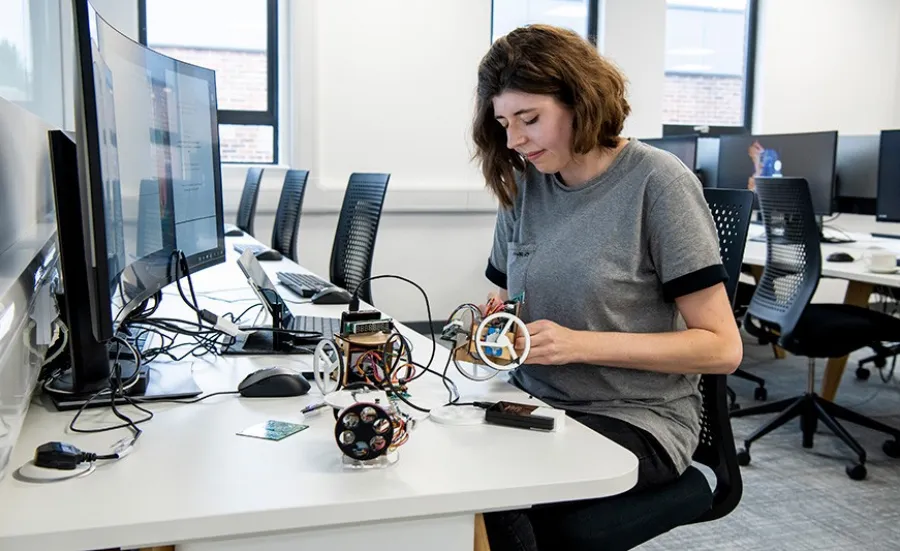Current research degree projects

Explore our current postgraduate research degree and PhD opportunities.

Explore our current postgraduate research degree and PhD opportunities.

Future space systems face unprecedented threats from radiation-induced faults and malicious tampering. This project will develop and validate adaptive, radiation-tolerant hardware architectures that secure both functional integrity and cryptographic trust in spaceborne electronics.
This project investigates the microstructural evolution and mechanical behaviour of laser-sintered lunar regolith. Combining advanced microscopy, nano-/micro-mechanical testing, and graph neural network modelling, the research will uncover how glass formation and pore topology control strength, enabling predictive design of next-generation regolith-based building materials.
This project aims to investigate how quantum technologies can transform MRI based dementia research, laying foundations for novel diagnostics. You'll work at the intersection of quantum engineering, neuroscience, and clinical analysis, and lead an interdisciplinary project with the potential to shape future dementia care and beyond.
This project investigates turbulent wakes around buildings and cuboid structures using wind tunnel testing and computational fluid dynamics to develop predictive tools for wind loading and climate resilience.
This project tackles the critical challenge of sterilising narrow channels in medical and space instruments. We will develop a novel hybrid cold plasma system, combining RF plasma with a DBD plasma, for deep channel penetration. Supported by industry expert Aurora, this research adapts space-derived technology to deliver a validated, safer sterilisation process for both space and medical domains.
This project extends dynamic combinatorial chemistry to oligonucleotides, creating libraries that respond to templating. It involves synthesising tailored nucleoside analogues and developing analytical tools using mass spectrometry and spectroscopy. Applications include sequencing, sensing, and aptamer formation, enabling novel biotechnology systems through adaptive, reversible chemistries for selective molecular recognition.
This project targets mRNA IRES structures of oncogenes using modified oligonucleotides to avoid broad translational inhibition. We will optimise ON modifications, transfection, and efficacy in organoids, focusing on lung and blood cancers. The goal is an adaptable, highly selective technology for precise regulation of multiple oncoproteins.
This project develops targeted delivery of antisense oligonucleotides for lung diseases such as cancer, asthma, and COPD. Conjugates will target lung cell receptors, with optimised linkers for recognition, transfection, and endosomal release. Designed for lung deposition, the system will be tested in organoid models, enabling novel, animal-free therapies.
PCR has transformed DNA research but relies on specialised equipment. This project aims to develop a reversible linkage system forming dynamic oligonucleotide libraries to template DNA replication. The approach will be used to evolve novel ligases and polymerases, ultimately enabling medicinal applications, including targeted therapies for various cancers.